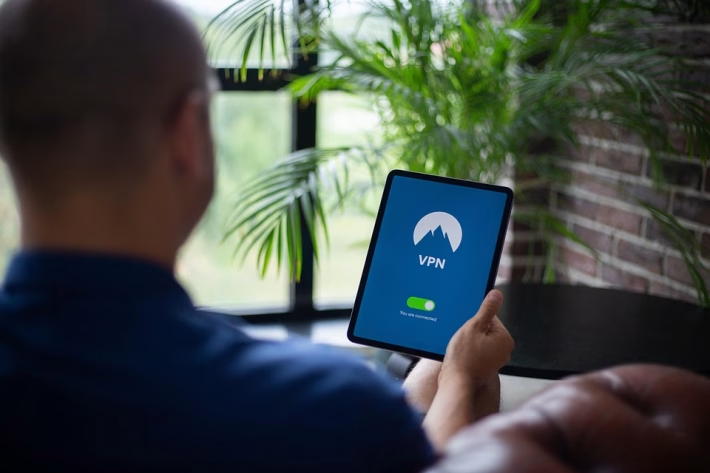Which Antivirus Software Reigns Supreme in 2025? Our Top Picks!

Introduction – Why Security and Privacy Matter Today
In an increasingly digital world, where every click, scroll, and touch is tracked and stored, the security of our digital lives has never been more crucial. As we navigate through 2025, cyber threats have evolved sharply, leading to unprecedented risks for businesses and individuals alike. The importance of security and privacy not only protects sensitive information but also preserves trust in digital relationships. With the surge of cyberattacks, data leaks, and identity theft cases, understanding how to safeguard your digital assets is essential.
Overview – The Risks Businesses and Individuals Face
Cyberattacks
Cyberattacks have escalated in frequency and sophistication. Hackers exploit vulnerabilities in software, ransomware attacks paralyze operations, and Distributed Denial of Service (DDoS) attacks compromise service availability. Each breach or attack can result in significant financial loss and reputational damage.
Data Leaks
Data leaks continue to pose a significant threat, often exposing confidential business information or personal data such as Social Security numbers and credit card details. Such leaks can lead to severe legal ramifications and loss of customer trust.
Identity Theft
Identity theft has become alarmingly prevalent, with cybercriminals using stolen data to impersonate individuals. This thief can result in financial ruin and an arduous journey to reclaim one’s identity, affecting credit ratings and personal relationships.
Best Tools – Essential Cybersecurity Software for 2025
When it comes to safeguarding your digital life, several tools can help mitigate the risks. Below is a curated list of the best cybersecurity software available in 2025:
1. Norton Antivirus
- Features: Real-time threat protection, VPN, cloud backup.
- Pricing: Starting at $39.99/year
- Pros: User-friendly interface, multi-device support.
- Cons: Can be resource-intensive.
2. ExpressVPN
- Features: Unlimited bandwidth, split tunneling, over 3,000 servers globally.
- Pricing: Starting at $8.32/month with an annual plan.
- Pros: Excellent privacy policy, great for streaming.
- Cons: Higher cost compared to competitors.
3. LastPass
- Features: Password vault, password generator, two-factor authentication.
- Pricing: Free version available; premium at $36/year.
- Pros: Great usability; secure sharing options.
- Cons: Security breach in 2022 raised concerns.
4. Bitwarden (Secure Cloud Storage)
- Features: End-to-end encryption, cross-platform support.
- Pricing: Free for basic; premium for $10/year.
- Pros: Open-source, great for team collaboration.
- Cons: Limited customer support.
5. McAfee Total Protection
- Features: Antivirus, web protection, identity theft protection.
- Pricing: Starting at $44.99/year.
- Pros: Offers identity theft protection; includes a VPN.
- Cons: Can be bloated with features most users may not need.
6. CyberGhost VPN
- Features: Over 7,000 servers, ad blocker, streaming optimization.
- Pricing: Starting at $2.75/month with a long-term plan.
- Pros: Affordable, user-friendly, good security features.
- Cons: Speeds can vary significantly.
7. Dashlane (Password Manager)
- Features: Password generator, secure sharing, dark web monitoring.
- Pricing: Premium at $59.99/year.
- Pros: Rich feature set; excellent user interface.
- Cons: The free tier is limited to one device.
Best Practices – Step-by-Step Methods to Improve Security and Privacy Using Software
-
Regular Updates: Ensure all your software, including your operating system and applications, are up to date. This helps patch security vulnerabilities that could be exploited by cybercriminals.
-
Strong Passwords: Use a password manager like LastPass or Dashlane to generate and store complex passwords. Aim for at least 12 characters, mixing letters, numbers, and symbols.
-
Multi-Factor Authentication (MFA): Enable MFA wherever possible to add an additional layer of security to your accounts.
-
Educate Yourself and Your Team: Conduct cybersecurity training sessions to help recognize phishing scams and malicious threats.
-
Utilize VPNs: Use a Virtual Private Network (VPN) whenever using public Wi-Fi, protecting your data from potential interceptors.
-
Regular Backups: Utilize secure cloud storage like Bitwarden to regularly back up important data, so you can recover it in the event of a breach.
- Monitor Financial Transactions: Regularly check bank and credit card statements for unauthorized transactions.
Industry Trends – Insights into Current or Upcoming Cybersecurity Trends in 2025
As we look at cybersecurity trends in 2025, a few key developments have emerged:
Increased AI Use in Cybersecurity
Artificial Intelligence (AI) is playing a pivotal role in identifying threats and automating responses. AI-powered systems can analyze patterns and detect anomalies faster than human oversight.
Zero Trust Architecture
The Zero Trust model is gaining traction, emphasizing that no user or application should be trusted by default, regardless of whether they are inside or outside the corporate network.
Emphasis on Privacy Regulations
With regulations like GDPR and CCPA setting standards for data protection, organizations are under increasing pressure to comply, leading to a rise in privacy-enhancing technologies.
Case Studies / Examples – Real-World Security Breaches and Lessons Learned
Example 1: Equifax Data Breach (2017)
The Equifax breach impacted the personal information of approximately 147 million people. The company faced overrunning financial penalties and reputational damage. The critical lesson? Maintain regular software updates and conduct proactive scans for vulnerabilities.
Example 2: Colonial Pipeline Ransomware Attack (2021)
A ransomware attack forced Colonial Pipeline to suspend its operations, leading to fuel shortages across the Eastern U.S. This breach illuminated the importance of robust network monitoring and employee training in identifying and addressing suspicious activities.
Comparisons – How Leading Tools Differ in Protection, Pricing, and Usability
When selecting cybersecurity tools, aligning features with your specific needs is vital. Here’s how the recommended tools stack up:
| Feature/Tool | Norton | ExpressVPN | LastPass | Bitwarden | McAfee | CyberGhost |
|---|---|---|---|---|---|---|
| Antivirus | Yes | No | No | No | Yes | No |
| VPN | Yes | Yes | No | No | Yes | Yes |
| Password Manager | No | No | Yes | Yes | Yes | No |
| Secure Cloud Storage | No | No | No | Yes | No | No |
| Pricing | $39.99/year | $8.32/month | $36/year | $10/year | $44.99/year | $2.75/month |
Pros & Cons – Balanced Analysis for Readers to Make Informed Decisions
Pros:
- Enhanced Security: Investments in cybersecurity tools lead to better protection against emerging threats.
- Peace of Mind: Knowing that your data is secure allows for greater confidence in digital activities.
- Compliance: Many tools ensure you remain compliant with privacy regulations, avoiding legal hassles.
Cons:
- Cost: Quality cybersecurity solutions come at a price, which can add up for small businesses.
- Complexity: Some tools may have a steep learning curve, requiring dedicated resources to manage effectively.
- Over-reliance: Relying solely on software can create a false sense of security; human vigilance is still essential.
FAQs
1. What is the best antivirus software for 2025?
Norton Antivirus remains a top choice in 2025, offering robust features for comprehensive protection against malware and threats.
2. Which VPN is safest?
ExpressVPN is one of the safest options available in 2025, known for its strong privacy policies and security features.
3. How to secure business data?
Implement a combination of strong passwords, VPNs, stable antivirus, regular employee training, and adhere to compliance standards.
4. Does a password manager really improve security?
Yes, password managers simplify the creation and storage of complex passwords, reducing the risk of breaches due to password-related vulnerabilities.
5. What features should I look for in cybersecurity software?
Focus on antivirus protection, VPN capabilities, user-friendliness, multi-device support, and regular updates among other features.
Conclusion – Final Thoughts with Practical Advice and Clear Recommendations
As cyber threats continue to evolve, taking proactive steps to enhance your cybersecurity posture is paramount. Invest in reliable tools, adopt best practices, and stay informed about current trends to safeguard your online presence. The first step is selecting the right software tailored to your specific needs, be it for personal use or for business. Remember, the best defense against cyber threats in 2025 is a combination of the right technology and prudent behavior. Secure your digital life today, and stay a step ahead of cybercriminals.
🚀 Try Ancoia for FREE today and experience the power of business automation!
🔗 Sign up now and get a 7-day free trial



